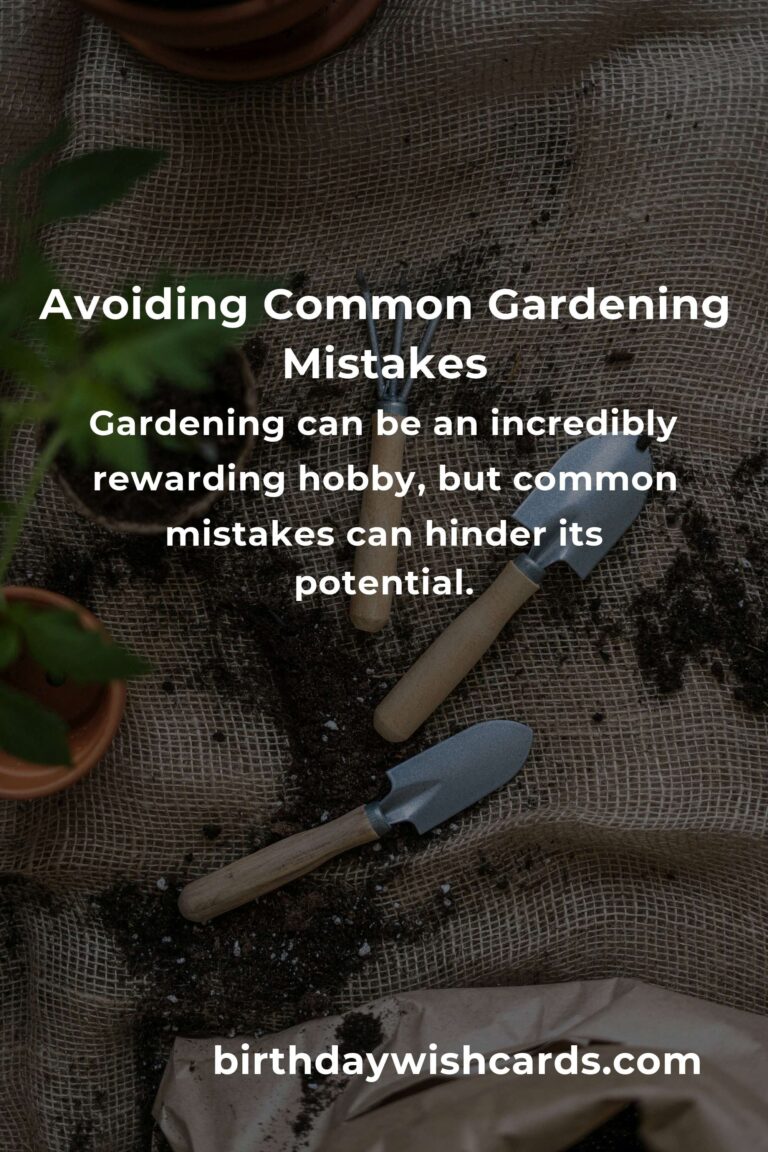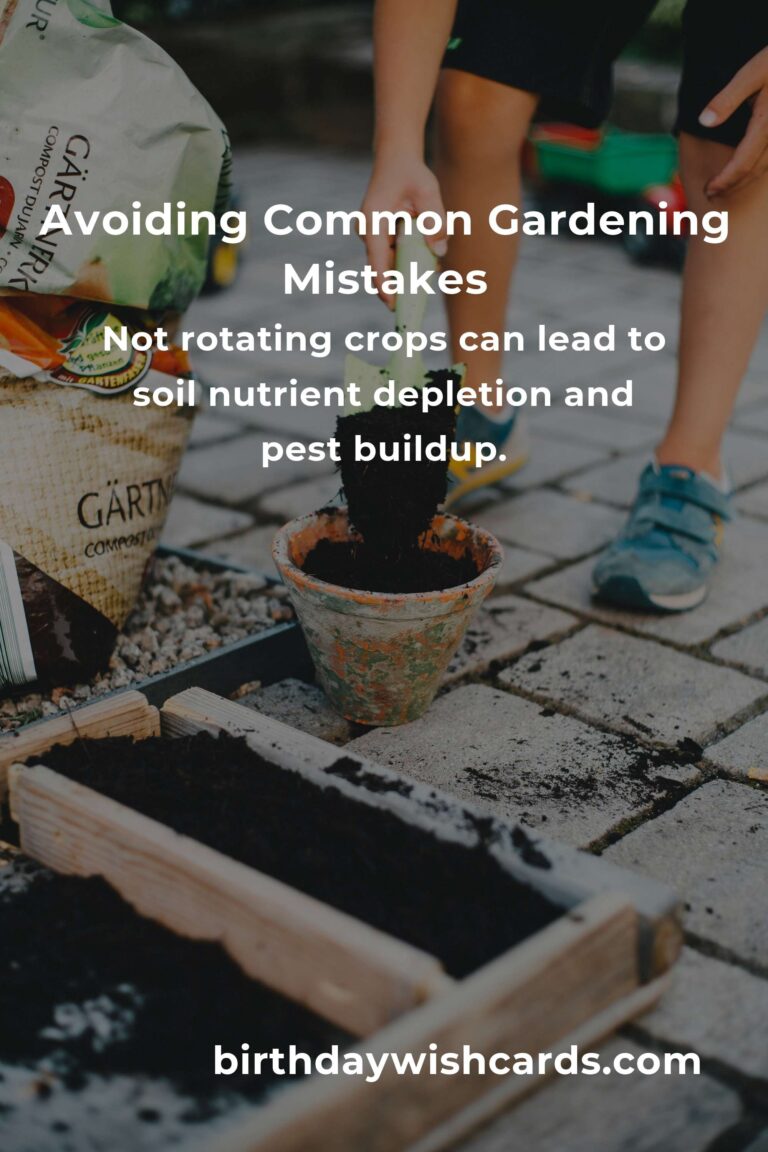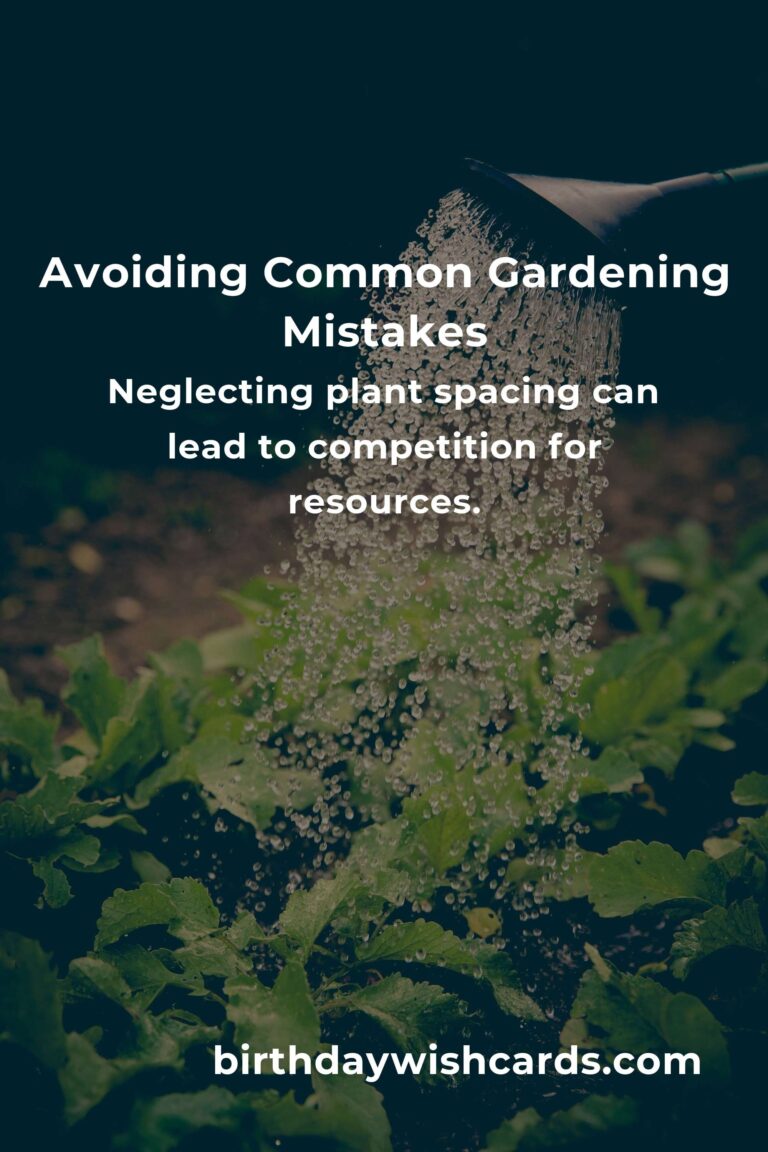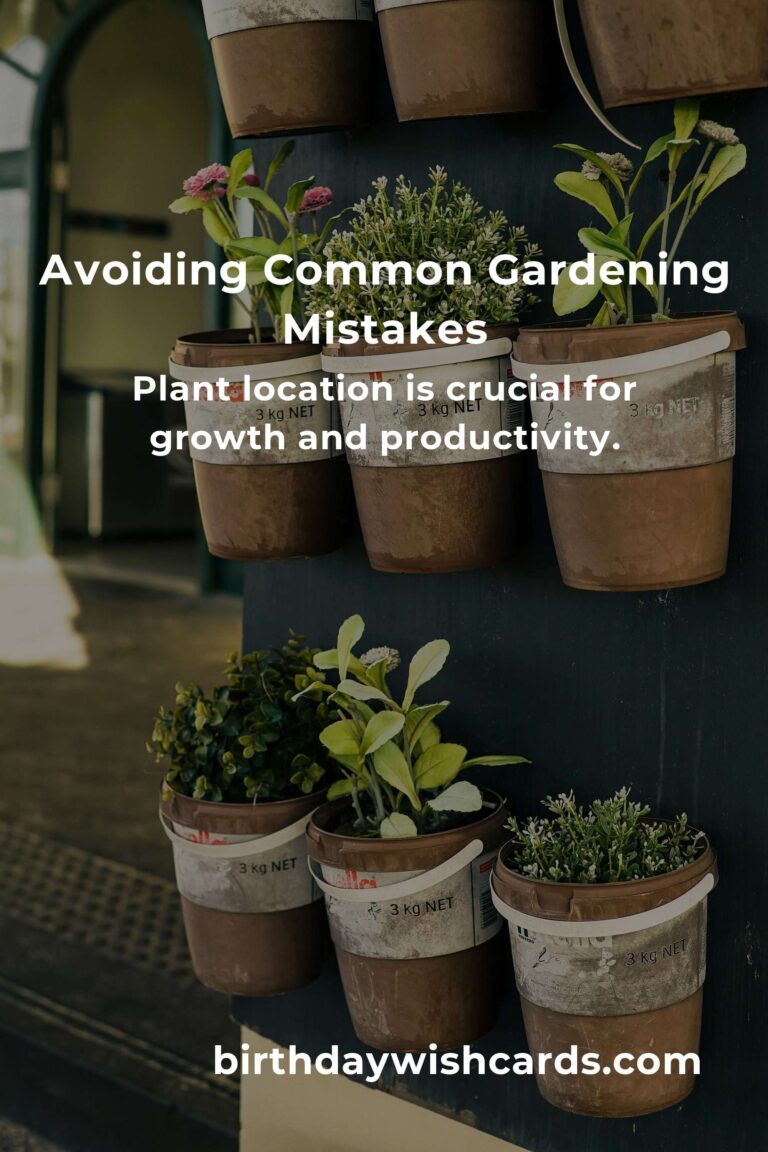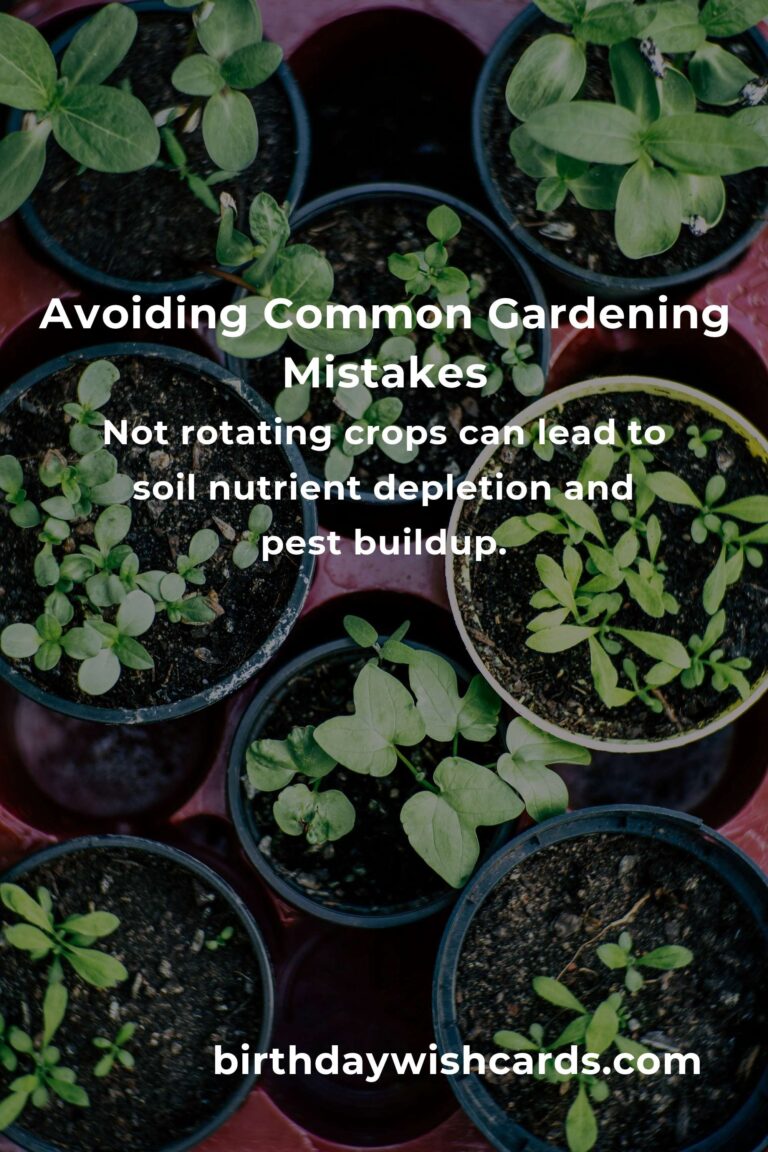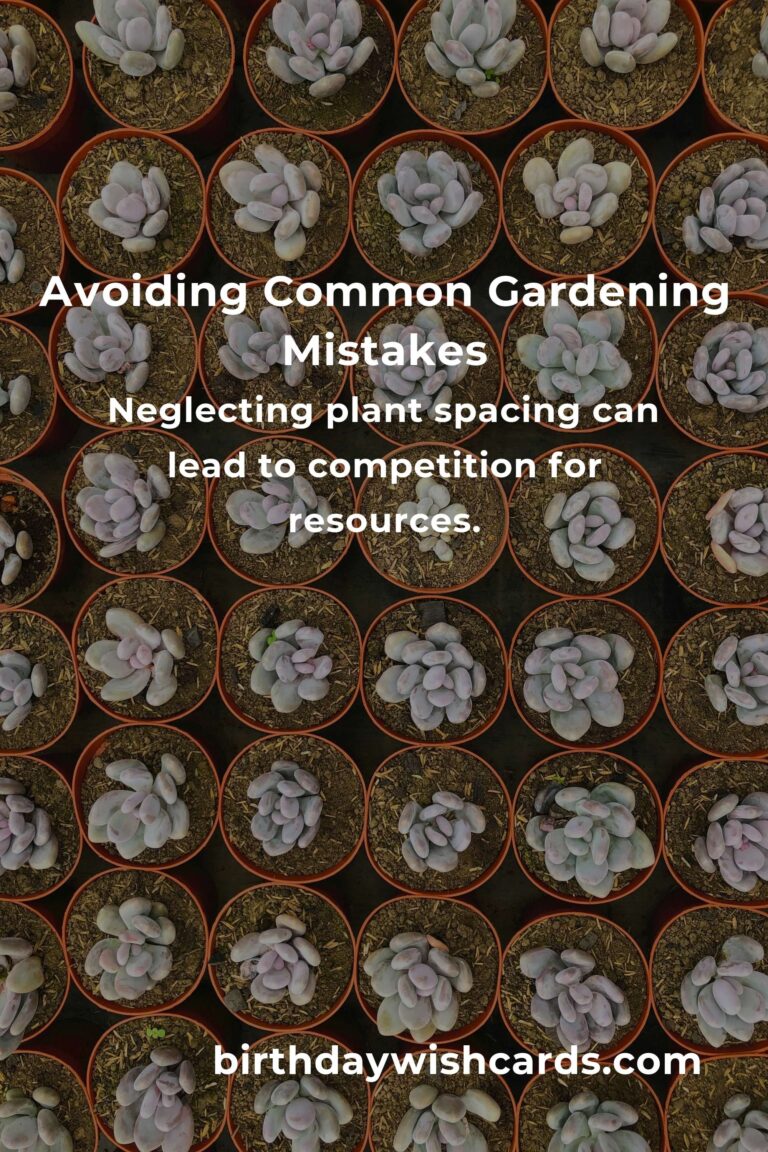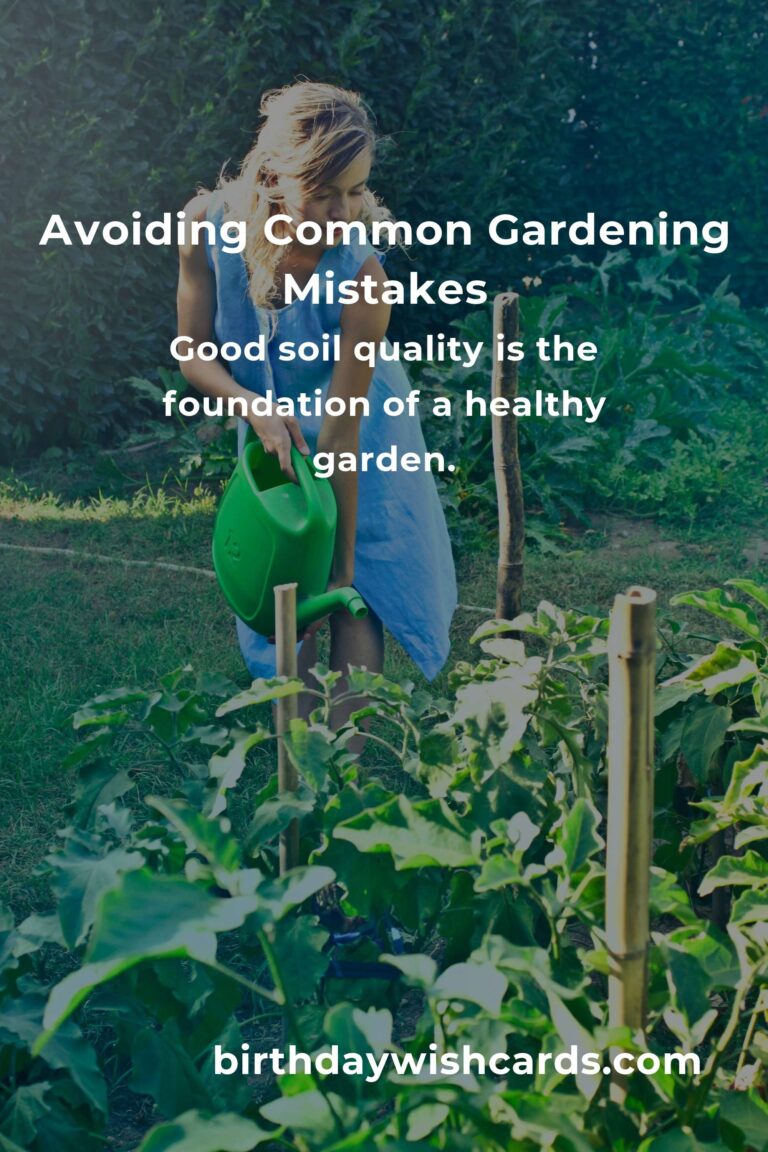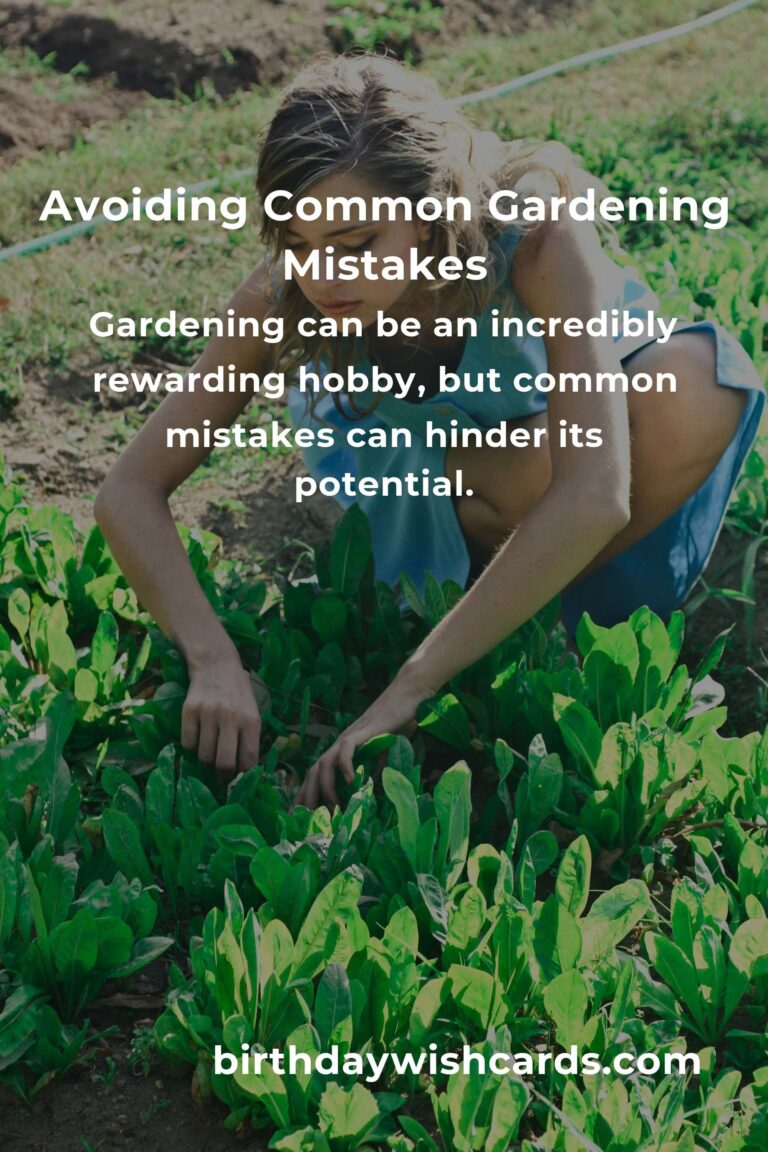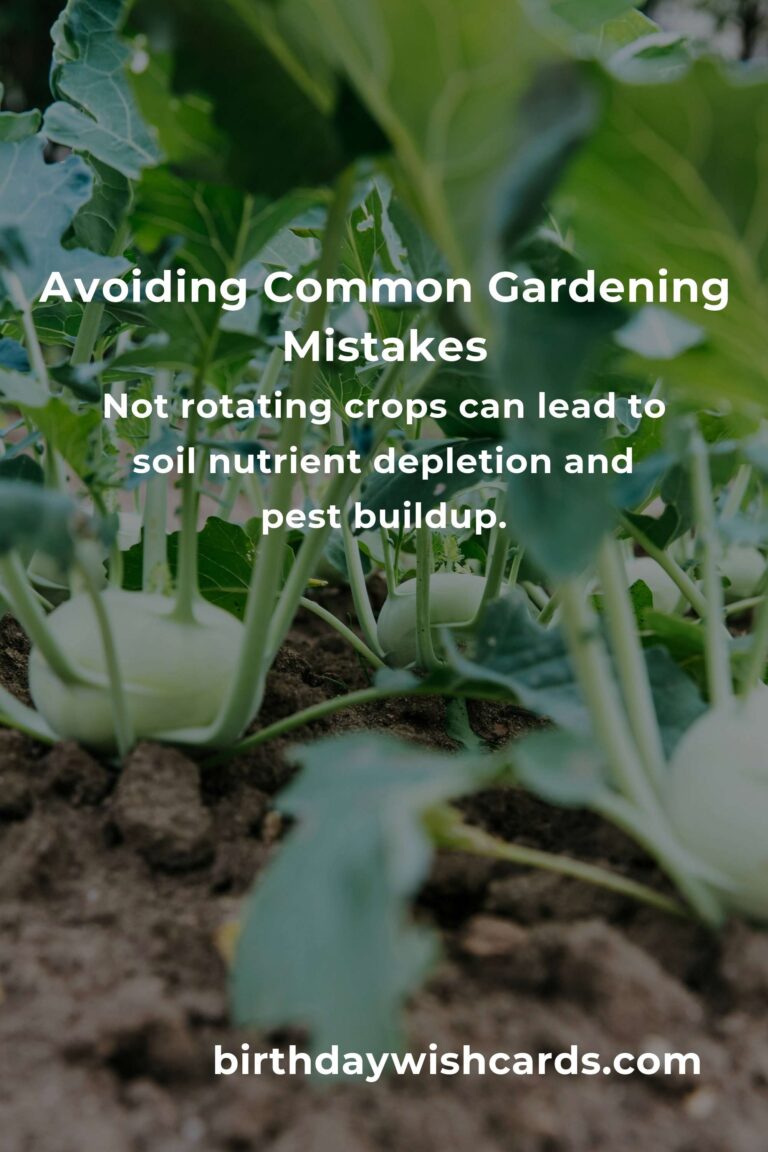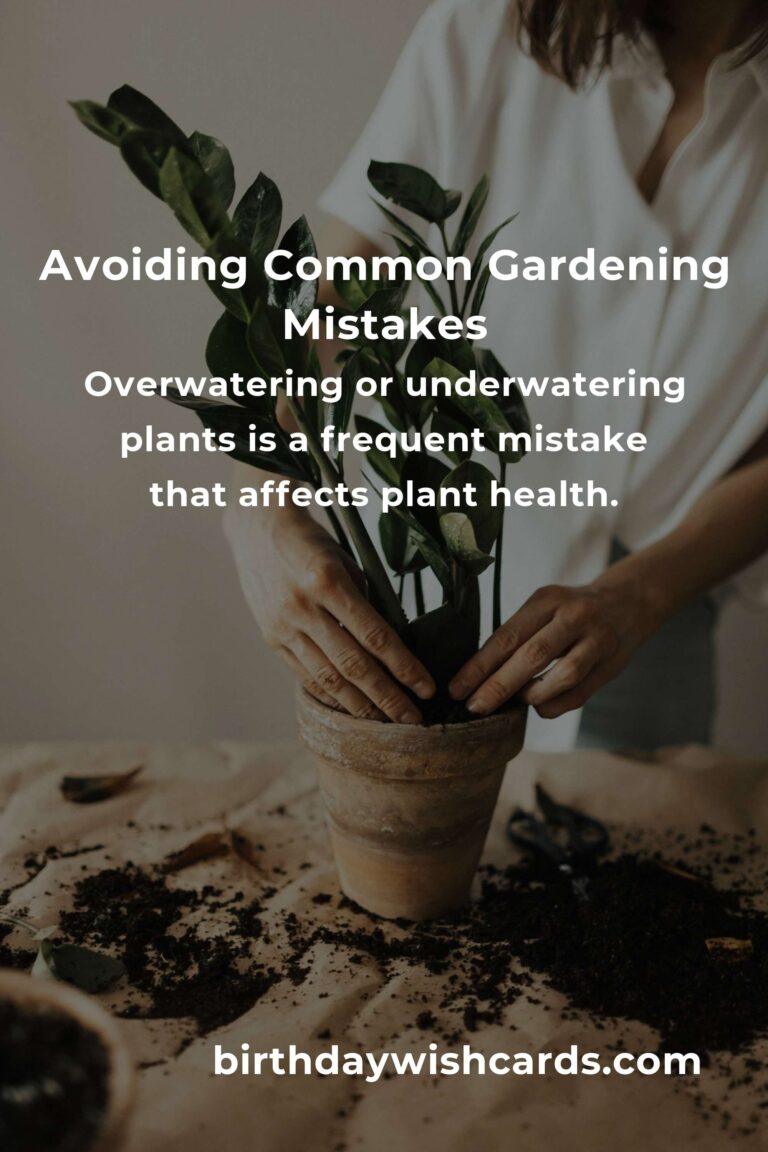
Gardening can be an incredibly rewarding hobby, offering both physical activity and mental relaxation. However, even seasoned gardeners can fall prey to some common mistakes that can hinder their garden’s potential. Understanding these pitfalls and how to avoid them can lead to a flourishing garden.
1. Overwatering or Underwatering Plants
One of the most frequent mistakes gardeners make is improper watering. Overwatering can lead to root rot, while underwatering can cause wilting and stunted growth. It’s essential to understand the specific water needs of your plants, which can vary significantly based on species and environmental conditions.
To avoid this mistake, regularly check the soil moisture level with your finger or a moisture meter. Ensure that the water reaches the roots but does not cause waterlogging.
2. Ignoring Soil Quality
Good soil quality is the foundation of a healthy garden. Many gardeners overlook the importance of soil testing, leading to poor plant growth and health. Soil should have the right balance of nutrients, pH levels, and structure to support plant life.
Conduct a soil test to determine its pH and nutrient levels. Amend the soil accordingly with compost, fertilizers, or other soil conditioners to enhance its quality.
3. Planting in the Wrong Location
Plant location is crucial for growth and productivity. Placing sun-loving plants in the shade or shade-loving plants in full sun can lead to poor growth or death. Understanding the light requirements of your plants is vital.
Before planting, observe your garden’s sunlight patterns throughout the day and choose plant locations that match their light needs.
4. Neglecting Plant Spacing
Plants need adequate space to grow and thrive. Overcrowding can lead to competition for nutrients, water, and sunlight, resulting in weak plants and increased susceptibility to diseases.
Always follow the recommended spacing guidelines for each plant type. This ensures that each plant has enough room to grow and access necessary resources.
5. Overlooking Pest and Disease Management
Pests and diseases can quickly devastate a garden if not managed properly. Ignoring early signs of infestation can lead to widespread damage.
Regularly inspect your plants for signs of pests and diseases. Employ integrated pest management strategies, such as encouraging beneficial insects, using organic pesticides, and maintaining plant health to minimize issues.
6. Not Rotating Crops
Crop rotation is essential in preventing soil nutrient depletion and reducing pest and disease buildup. Planting the same crop in the same location year after year can lead to these problems.
Rotate your crops annually to maintain soil health and reduce pest and disease issues. This practice also helps in managing weed problems.
Conclusion
A thriving garden requires attention to detail and a willingness to learn from mistakes. By avoiding these common gardening pitfalls and adopting best practices, you’ll be well on your way to cultivating a beautiful and productive garden.
Gardening can be an incredibly rewarding hobby, but common mistakes can hinder its potential. Overwatering or underwatering plants is a frequent mistake that affects plant health. Good soil quality is the foundation of a healthy garden. Plant location is crucial for growth and productivity. Neglecting plant spacing can lead to competition for resources. Overlooking pest and disease management can devastate a garden. Not rotating crops can lead to soil nutrient depletion and pest buildup.
#Gardening #GardenTips #PlantCare #SoilHealth


